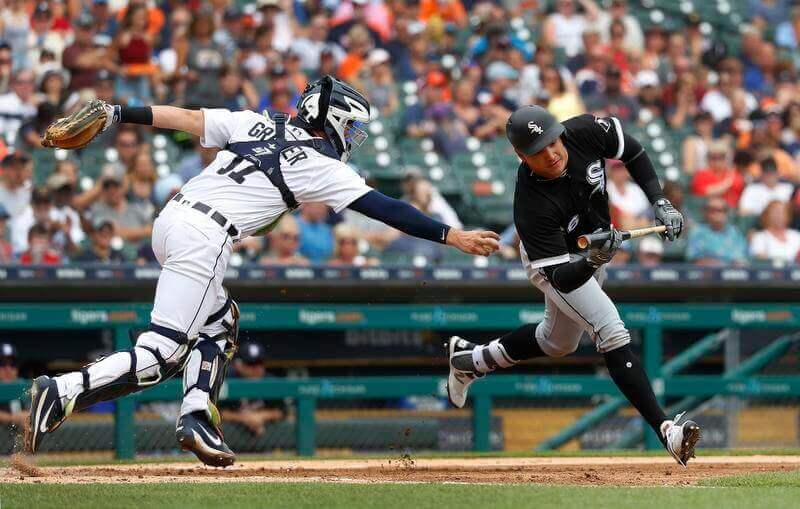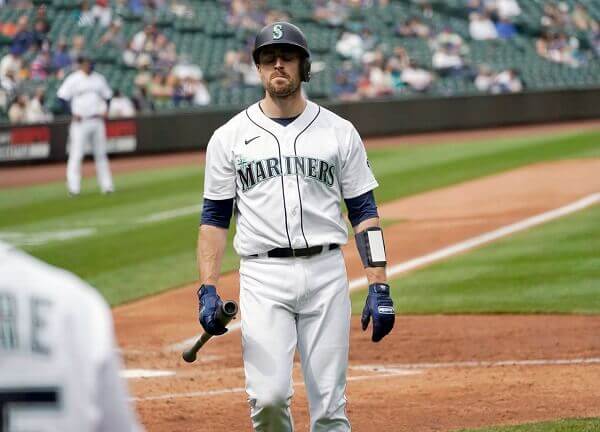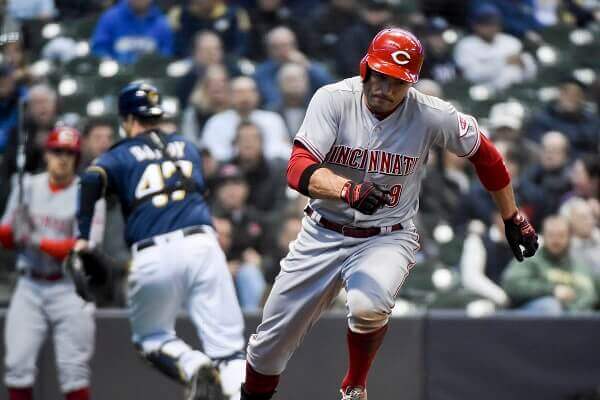There are several strange rules in MLB and the dropped third strike is one of them. It rarely occurs but once it does, you should know what is the dropped third strike rule. In this blog, I’ll walk you through every aspect of it.
What is Dropped Third Strike?
The Dropped Third Strike Rule is a strange rule that occurs once in every game. In fact, it only has happened twice since The Show began in 1969.
Basically, it is when a third strike is thrown and the batter does not swing at the ball. It will cause the umpire to call a third strike on the batter. The batter will be out at that point but no one knows why. There is no rule that covers this so it gets really confusing. You can’t be thrown out for not swinging at a 3rd strike, but you can be thrown out if you don’t swing at one!
It’s an anomaly. MLB and The Show have never explained why this rule is in place but it has been a part of the game since its original release in 1992. It just doesn’t make any sense!
This rule will take effect when :
- A batter misses at a pitch on the outside corner that should have been caught.
- A third strike is taken when the pitcher makes a mistake or gets wild.
When these conditions are met, this is a chance for the batter to make it to the first base.
Related:
When Can a Batter Advance on a Dropped Third Strike?
A batter can be awarded first base if a catcher throws out a baserunner on the third strike. This is the way it works.
However, the dropped third strike is mainly used in situations when a runner on third base came home on a hit.
The batter who gets legally hit with a dropped third strike can also be awarded first base to help out the offense when they score and get added to the RBI statistic.
Normally, the batter can’t run to first base on a dropped third strike. However, if the runner is on third base, then he can run all the way to first.
What Happens if a Batter Hits a Dropped Third Strike?
If it happens that a batter gets out on a dropped third strike hit, then the pitcher can immediately throw to the next batter in order to give himself some time. The pitcher can also throw to any of his teammates due to this rule being given by the catcher. He can throw them with no purpose other than warming up. If the player is in the dugout then it will be just that. The player can throw to anyone in the dugout except for the pitcher.
However, if there is any defensive error on this, then a fielding error can affect that. This means that if the catcher and fielder have made an error, then it will go back to time and not count at all.
Can You Run on a Dropped Third Strike With Bases Loaded?
If there is a runner on third base and the bases are loaded, then this is the only situation where you can run on a dropped third strike. The batter must swing at that pitch. If he doesn’t, then it will be considered as a dropped third strike. However, in this case, the catcher can reach the home plate to finish that inning.
Bases loaded mean a lot of points, especially with the RBI. However, few people know if they can run on a dropped third strike with bases loaded.
The answer is no and that is because a pitcher has to throw the ball to home plate in order for the batter to be out when it comes down to this instance or situation. However, if the runner makes it to third base on error then he will score in this route.
Can a Runner Score on a Dropped Third Strike?
This is the only circumstance where a player can score on a dropped third strike. He can do it if he is on second or first base. They must hit the ball hard in order to get a good reading.
The batter will have to swing at that pitch to reach home plate. If he doesn’t, then it is considered as a dropped third strike which will allow the pitcher to finish the inning immediately and not waste time.
How is a Dropped 3rd Strike Scored?
A dropped third strike isn’t the same as a strikeout. If you get a strikeout, then you will be charged with a loss. You will be charged with an out and nothing else on the record. However, if it is a dropped third strike, then the game will not consider it as an out or baserunner loss. It won’t hurt your statistics or anything of that matter.
This will go to time and if the batter is able to reach that base, then they will be charged with a single. However, if they can’t reach it, then he will be charged with a loss.
How Does a Dropped Third Strike Affect Batting Average?
If a batter gets a third strike, it’s considered a strikeout for that batter, then his batting average is reduced. This is because he has been “out” three times.
If a batter hits a dropped third strike, then it will not affect his batting average at all. A dropped third strike is not considered an out or an out for the pitcher, so it does not count on his statistics.
Is There a Dropped Third Strike Rule in the MLB?
There is a dropped third strike rule in the MLB as stated in the rule book. It’s rule 5.05 . It says that if the batter doesn’t swing at the third strike, then he will be automatically out. However, this is a rule that is rarely used.
Only two times have players been “dropped” on this rule and they were in 1999 with Arizona pitcher Todd Stottlemyre and in 2001 with St. Louis pitcher Rick Ankiel.
What Happens if the Third Striker Hits the Ball?
If a pitcher doesn’t make a good pitch or misses with his throw, then you will get what is called a passed ball. It means that he was trying to get out in time and didn’t try hard enough or take care of the ball. In this case, some balls are not caught and they are called dead balls. They go to the wrong base.
The main thing about this rule is that if you don’t make a good pitch and the batter hits the ball then it won’t count. It will not be considered an out or a run. In this case, you are charged with a passed ball and play will go on.
Do You Get an RBI on a Dropped Third Strike?
You get an RBI if the third strike is dropped and a runner has already reached home. This means that it is the only time where you can get a run by hitting a dropped third strike.
However, you will not be credited an RBI if you don’t swing at it and make it to first base. The game will consider this as a regular out which gives no credit towards your RBI statistic. It also doesn’t hit your batting average.
Final Words
To conclude, the dropped third strike rule is considered to be very rare. If you happen to get a dropped third strike, then it will not count on your statistics for any of the games that you participate in. It won’t affect your batting average nor will it affect your RBI statistic.


